belit sağ: through an empathic lens
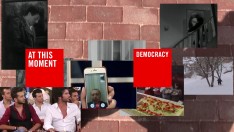
disruption / aksama, by belit sağ
Sunday August 11, 2024, 7:30pm
At 2220 Arts + Archives, 2220 Beverly Blvd., Los Angeles CA 90057
In person: belit sağ
Tickets: $15 general, $10 students/seniors, free for Filmforum members
At https://link.dice.fm/n0ac52eb3081
Filmforum is honored to host filmmaker belit sağ in person from Amsterdam for her first single artist show in Los Angeles!
Keenly challenging our sometimes jaded expectations of political filmmaking, belit sağ’s video work is remarkable and vital for its complex emotionality, deep engagement, and thoughtful, purposeful manipulation of the moving image. Through her subtle and varying interventions, she brings targets such as censorship, racism, corruption, fascism, oppression, and state-sanctioned violence into sharp and unexpectedly sensitive focus. Employing a dynamic mix of aesthetic and formal strategies with eclectic creativity, her work functions as a radical, critical inquiry into the very act of photography and representation, a conscious insistence on the use of the camera and the recorded image for purposes of connection and compassion over exploitation.
Despite the intimate and often deceptively informal nature of her gaze and the highly subjective, first-person consideration of topic, her thoughtful use and manipulation of video, voice, and the written word create a complex audiovisual language that resonates upward and outward to encompass much larger political and philosophical considerations. Photographs are rephotographed, multiplied, or fragmented, and her frequent use of Turkish-language voiceover permeates the screen visually, as subtitles sometimes take on a life of their own. Text becomes image and images become language, creating a dynamic mediated space for her compassion, outrage, and rigorous, empathetic inquiry.
Program and notes by Mark Toscano. Many thanks to belit and to Almudena Escobar López.
belit sağ (she/they) is a visual artist, videomaker and educator from Turkey living in Amsterdam. She studied mathematics in Ankara; audiovisual arts and comparative literature in Amsterdam. Her background in moving images is rooted in her work within video-activist groups in Ankara and Istanbul, where she co-initiated groups such as VideA, karahaber, and bak.ma. They were an artist in residence at Rijksakademie van Beeldende Kunsten (2014/2015, Amsterdam) and International Studio and Curatorial Program (2016 & 2019, NYC). Her research-based artistic practice centers on the visual representations of political violence and archival representations of migration histories. Their current project Remembering Otherwise is an archival research project on a 1978 labor struggle of a group of migrant women from Turkey, who were the first unionized migrant women in the Netherlands. She presented works at MOCA, Taipei; Toronto, Rotterdam, San Francisco and New York International Film Festivals, documenta14, Flaherty NYC, LUX London, Tabakalera Film Seminar, transmediale and Eye Filmmuseum, among others. LIMA distributes their moving image works. She tutors at Sandberg Institute, Gerrit Rietveld Art Academy and Royal Academy of Art Den Haag (KABK) and is currently a fellow at ReCNTR Multimodal Research Center, Leiden University.
Screening total time 60.5 min.
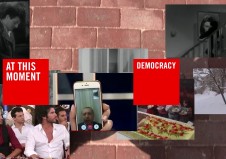
disruption / aksama
disruption / aksama
2016, 5 min.
A first-person footage of belit sağ’s feet as she walks from one building to another with a superimposed mosaic of images from television news from coup d’etat attempt of 2016 in Turkey, combined with popular films and clips that gradually interact with each other.
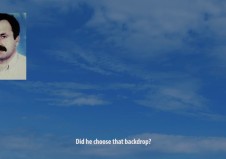
cut-out
cut-out
2017, 4 min.
The video takes a closer look into the police file photo of the victims of National Socialist Underground (NSU) in Germany. NSU was a Neo-nazi group, that killed 10 people over the course of 8 years. Nine of them have a migrant background, mostly Turkish, Kurdish. These racially motivated murders not only show the strong Neo-nazi networks existing in Germany but also the structural racism in police force, secret service and the media. What does a police file photo of the victims have to share with the viewer?
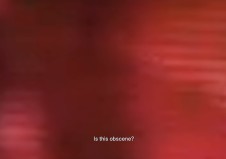
grain
grain
2016, 4.5 min.
Mainly prisoners from a sectarian political organization went on hunger strike en mass all around Turkey against isolated captivity law proposed by the government in 1999. Through research into the images of these hunger strike and the simultaneous gruesome state operation resulted in images that were largely televised and became part of the collective memory of the country. The demonstrations by the families of the hunger strikers were the first political actions sağ joined as a videoactivist in the streets of Ankara. The political organization kept its own archive of the operation and then smuggled it to the Netherlands. Dealing with the violence in the archived images is at the heart of the video work.
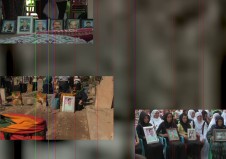
what remains / geriye kalanlar
what remains / geriye kalanlar
Netherlands, 2018, 7 min.
"what remains" is constructed from images that sağ shot and gathered during 2015 and 2016 in Cizre, a primarily Kurdish town in Turkey on the Syrian border, as well as found footage from all over Turkey from the same period. A focus of the work is the artist’s footage of collective Kurdish mourning practices, and looking at how images of the dead are used in these practices. sağ approaches her subject both philosophically and emotionally, and is driven to find a way of making work that is theoretically rigorous and morally and ethically compassionate. She reveals how images not only manipulate, but also link us to the people caught between life and death, past and present.
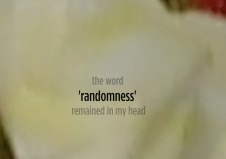
(Against) Randomness
(Against) Randomness
2017, 2.5 min.
A short video made as part of NSU Tribunal commemorating the people attacked and killed by the Neo-Nazi network National Socialist Underground between 2000 and 2010 in Germany.
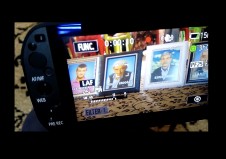
my camera seems to recognize people
my camera seems to recognize people
2015, 3.5 min.
A video poem in three parts, on recording and being exposed to the images of death and destruction. Images are recorded by sağ in between Turkish state’s attacks on Kurdish lands in 2015.
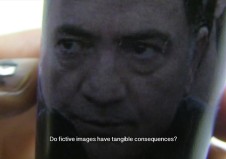
Ayhan and me / Ayhan ve ben
Ayhan and me / Ayhan ve ben
Netherlands, 2016, 14 min.
Explicitly discussing its own production and censorship at the hands of Turkish officials, the video is an incisive examination of the power of images, the roles and responsibilities of representation, sanctioned history-making, and the charged relationship between art and state control. "Ayhan and Me" was created for a censored exhibition in Istanbul.
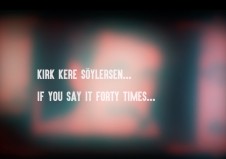
If you say it forty times... / Kirk kere söylersen...
If you say it forty times... / Kirk kere söylersen...
2017, 5 min.
The video investigates political amnesia by looking at the media images, mainly of public figures from mafia, the state and their collaborators, in Turkey in the last forty years. Some should not know what they know; others claim to be mentally absent in critical moments. On the other hand, there are people who claim to not forget any detail. The history is squeezed in moments of these remembering and forgetting.
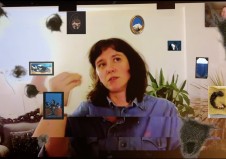
Sevil
Sevil
2024, 8.5 min.
A contemporary artist, Sevil Tunaboylu, recounts her experiences of censorship and self-censorship following an attack on her painting featuring a Kurdish guerrilla.
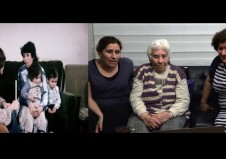
Remembering Otherwise
Remembering Otherwise
2024, work in progress, 4 min.
How do the women involved in a 1978 labor dispute between a group of sixty-five women labor migrants from Turkey and the vegetable processing company in the Netherlands that they were working for at the time remember? sağ brings the archival images of the dispute to the women and through watching together embodied ways of remembering emerge.
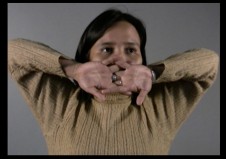
‘thank you’
‘thank you’
2013, 2 min.
A video-message where Indonesian garment worker Yanti is constantly repeating the words ‘thank you for your solidarity’, in different pronunciations and tones to find the ‘correct’ way.
